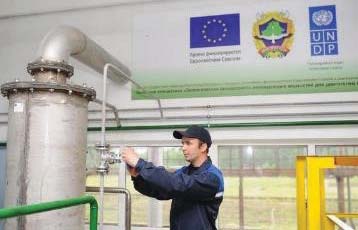Disclaimer:
Please be aware that the content herein has not been peer reviewed. It consists of personal reflections, insights, and learnings of the contributor(s). It may not be exhaustive, nor does it aim to be authoritative knowledge.
The production was established within the UNDP project "Supporting the Transition to a Green Economy in the Republic of Belarus".
Establishment of this production led to the creation of the conditions for the transition from the use of environmentally unsafe coolants based on ethylene glycol polluting the soil to a low-risk analogue produced in Belarus; it is based on glycerol, a substance widely used even in the cosmetics industry as safe in small quantities and not polluting the soil.
To avoid engine overheating, vehicle manufacturers recommend changing the coolant every 45-50 thousand kilometers. Capacity - about 1000 tons of antifreeze per year (up to 5% of the Belarusian market capacity).
Emissions - 0.3 tons of substances into the air per year (filter installed).

The samples of the new product “Antifreeze ECO-100” underwent laboratory tests in RUE “Scientific and Practical Center for Hygiene”. The distinctive feature of the product is that with its properties it may replace the more expensive imported hazardous analogues of the 1st and 2nd classes, while the disposal of this product would cost enterprises with vehicle fleets a lot cheaper.
Implementation of the pilot initiative made it possible to create conditions for gradual replacement in the Republic of Belarus of up to 5% of the annually consumed volume of the existing coolants to an environmentally friendly analogue produced in Belarus and to access the markets of the Eurasian Economic Community (the volume of coolants consumed in the Republic of Belarus is about 13,000 tons per year).
T*******************************************************************************************g@tut.by


 9Industry, innovation and infrastructure
9Industry, innovation and infrastructure 11Sustainable cities and communities
11Sustainable cities and communities 12Responsible consumption and production
12Responsible consumption and production

Comments
Log in to add a comment or reply.